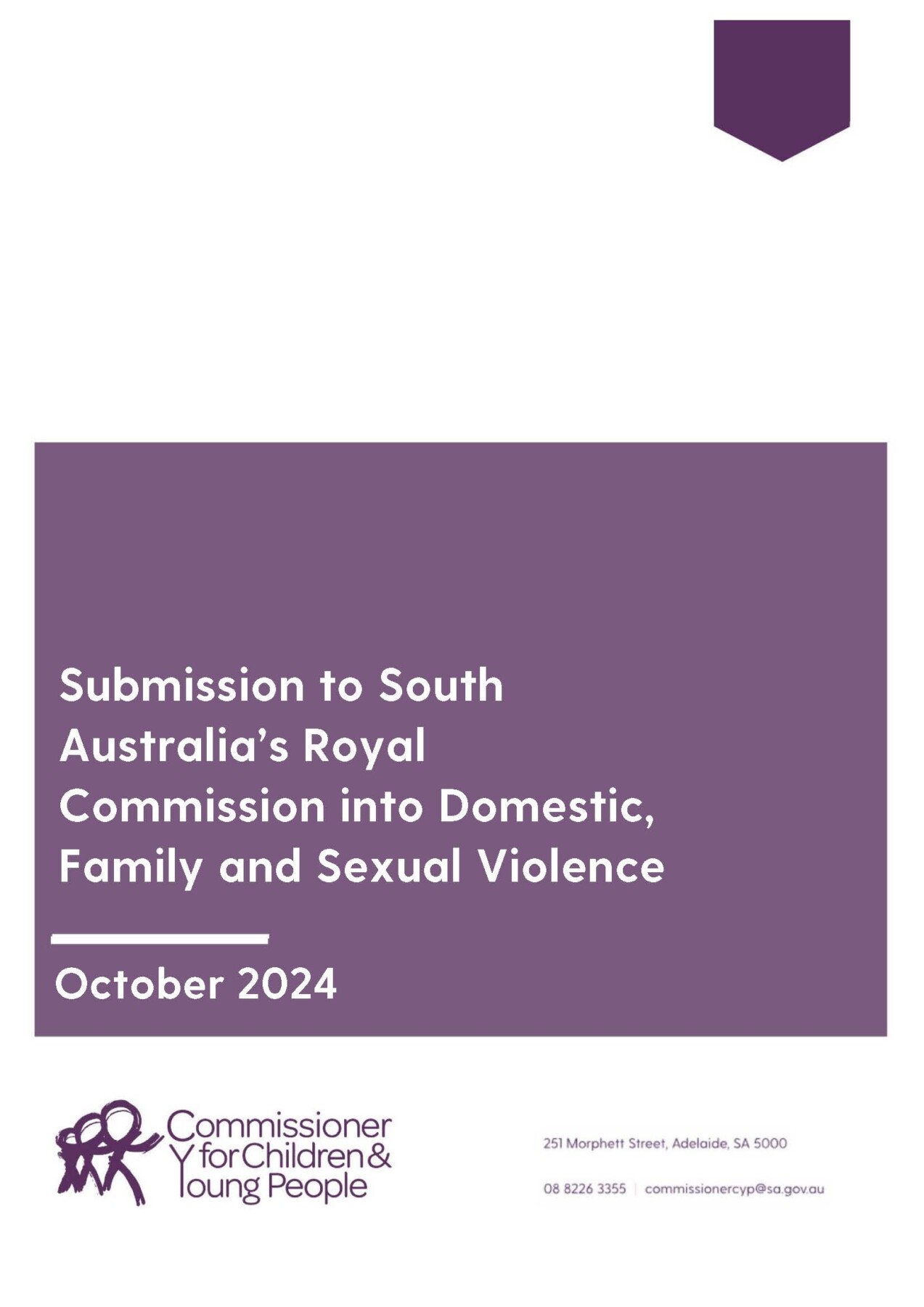The Commissioner commends the Royal Commission for the work they have undertaken to date and their commitment to seeking the views and experiences of children and young people. Designing a system to ‘better meet the needs of those who interact with it’ and to ‘end gender-based violence in one generation’ means designing a system that effectively and meaningfully recognises and responds to children and young people’s rights and experiences.
The National Plan to End Violence Against Women and Children 2022-2032 recognises children and young people as victims of gender-based violence in their own right. However, children and young people’s unique perspectives and experiences continue to be overlooked in policies, systems and services generally and in the context of domestic, family and sexual violence specifically.
This submission highlights the importance of focusing on children and young people across all domains: prevention, early intervention, response, and recovery and healing. It also recognises that these domains intersect and important opportunities to prevent violence (from occurring, reoccurring and/or escalating) exist across all domains.
The Commissioner recommends that the Royal Commission into Domestic, Family and Sexual Violence:
- Improve collaboration across all systems to:
- Prioritise prevention, early intervention and listen to and value children and young people’s perspectives and experiences.
- Build the capacity of all systems to understand the dynamics of family, sexual and domestic violence and support children, young people and families earlier.
- Support coordinated and consistent approaches to family, domestic and sexual violence, and address contradictory approaches to safety across family violence, family law and child protection systems.
- Invest in universal and targeted prevention from an early age, promoting positive relationships and behaviours, and addressing sexism and gender stereotypes.
- Prioritise specialist child- and youth-specific recovery and support responses for children and young people who have experienced violence, with particular regard to:
- Groups of children who are at greater risk of experiencing violence and face additional barriers to support.
- Children and young people escaping violence and seeking support without an adult.
- Prioritise earlier, tailored and therapeutic systemic responses for:
- Children and young people using violence at home.
- Children and young people displaying harmful sexual behaviours.
- Children and young people using and experiencing violence in intimate relationships.
- Improve the capacity of the family law system to better listen to and support children, and to understand the dynamics of family, domestic and sexual violence.
- Recognise the impacts of physical punishment on children and repeal the legal defence of ‘reasonable chastisement’.

